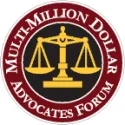Medical Bills After an Accident
12 states currently have No-Fault insurance laws for consumers. Pennsylvania is one of them. No-Fault essentially means that if you own a car that is registered or required to be registered with the Commonwealth, it must be insured with the mandatory minimum coverage, including medical payments.
Regardless of fault, each person must use car insurance to pay the bills. The problem is that in the very beginning of an injury claim from a car accident, the car insurance does not get notified when you are injured in an accident. Here is an example:
Operator A is stopped in traffic. He is rear-ended by operator B. It is a very severe crash, and operator A is rushed to the hospital, where he seeks emergency medical attention. About a week later, operator A seeks a lawyer and hires him.
Then, all of a sudden, operator A receives bills for the treatment at the hospital and the ambulance company. Operator A is very upset because he has a great insurance plan with Blue Cross, Keystone, or Aetna, and they are not paying his bills.
The above scenario is very common in Pennsylvania. Section 1713 of the Motor Vehicle Financial Responsibility Law answers this question (who pays my medical bills):
§ 1713. Source of benefits.
- General rule.–Except as provided in section 1714 (relating to ineligible claimants), a person who suffers an injury arising out of the maintenance or use of a motor vehicle shall recover first party benefits against applicable insurance coverage in the following order of priority:
- For a named insured, the policy on which he is the named insured.
- For an insured, the policy covers the insured.
- For the occupants of an insured motor vehicle, the policy on that motor vehicle.
- For a person who is not the occupant of a motor vehicle, the policy on any motor vehicle involved in the accident. For this paragraph, a parked and unoccupied motor vehicle is not a motor vehicle involved in an accident unless it was parked to cause an unreasonable risk of injury.
This means that when you are in a Philadelphia, the first company that pays your bills, regardless of fault (because Pennsylvania is a No-Fault state), is the car insurance you must have. That is what the statute means by “the policy on which he is a named insured.”
If you own a car and have an insurance policy, that company pays first. So in the example above, the first thing you can do is report the injuries from the accident to your insurance company and let the hospital and the ambulance company know the details of your auto insurance, like the claim number, so that they can bill the auto insurance. This is why your private health insurance did not pay.
If you are an insured on the policy but not a named insured, that policy pays your medical. If you do not own a car, then the car you are in pays the medical. If you are a Pedestrian, any car involved in the accident will pay the bills.
When the benefits are exhausted from the car insurance, then your private health insurance must be billed. If the provider you treat does not accept private health insurance, you can recoup those outstanding bills from the wrongdoer’s automobile policy.






